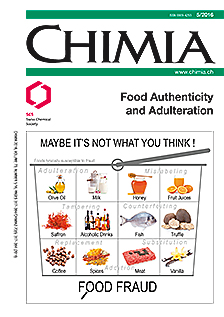Food Fraud Prevention: Policy, Strategy, and Decision-Making – Implementation Steps for a Government Agency or Industry
DOI:
https://doi.org/10.2533/chimia.2016.320Keywords:
Authenticity, Economically motivated adulteration, Food crime, Food fraud, PolicyAbstract
This paper addresses the role of governments, industry, academics, and non-governmental organizations in Food Fraud prevention. Before providing strategic concepts for governments and authorities, definitions of Food Fraud are reviewed and discussed. Next there is a review of Food Fraud activities by the Global Food Safety Initiative (GFSI), the Elliott Review in the United Kingdom, the European Commission resolution on Food Fraud, and the US Food Safety Modernization Act including the Preventative Controls Rule. Two key concepts for governments or a company are: (1) formally, and specifically, mention food fraud as a food issue and (2) create an enterprise-wide Food Fraud prevention plan. The research includes a case study of the implementation of the concepts by a state or provincial agency. This analysis provides a foundation to review the role of science and technology in detection, deterrence and then contributing to prevention.Downloads
Published
2016-05-25
Issue
Section
Scientific Articles
License
Copyright (c) 2016 Swiss Chemical Society

This work is licensed under a Creative Commons Attribution-NonCommercial 4.0 International License.
How to Cite
[1]
J. Spink, N. D. Fortin, D. C. Moyer, H. Miao, Y. Wu, Chimia 2016, 70, 320, DOI: 10.2533/chimia.2016.320.







